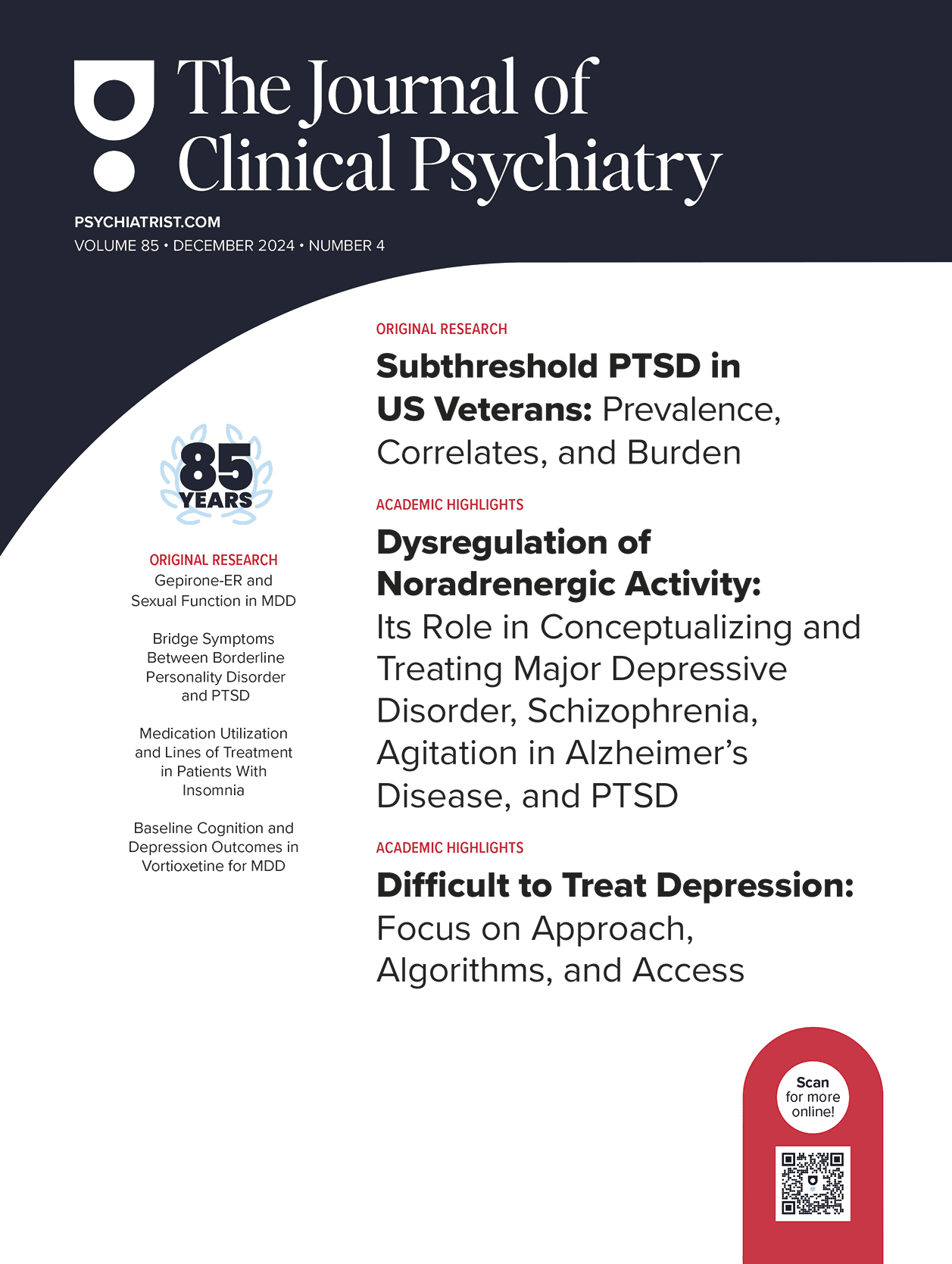Objective: To determine whether infants exposed in utero to serotonin reuptake inhibitor (SRI) antidepressants or a DSM-IV-TR-defined mood disorder have significantly more neonatal discontinuation signs compared to an unexposed group of infants at 2-4 weeks after birth.
Methods: This secondary analysis was derived from 2 observational studies with enrollment from July 2000 to December 2011 in Cleveland, Ohio, and Pittsburgh, Pennsylvania. Mothers (n = 214) belonged to one of 3 groups based on exposure status during pregnancy: (1) Comparison—women who did not take psychotropics during pregnancy and had no major mood disorder; (2) SRI-exposed—women with a mood disorder who were taking an SRI but no benzodiazepines; and (3) Mood Disorder—women with depression or bipolar disorder who did not take psychotropic medications. The infants were examined for signs according to the Finnegan Scale by evaluators blind to maternal exposure status.
Results: The rates of sign presence (defined as a score ≥ 2 on the Finnegan Scale) in the SRI, Mood Disorder, and Comparison groups were similar at 34.1%, 35.1%, and 30.4%, respectively. Women in the SRI group had a significantly higher preterm birth rate (24.4%) compared to the other 2 groups (7.4% and 8.9% in the Mood Disorder and Comparison groups, respectively; P = .012). Preterm newborns had a significantly higher sign rate compared to full-term newborns (54% vs 31%, P = .020). We observed a significant relationship between Finnegan signs and preterm birth.
Conclusions: The presence of neonatal signs at 2-4 weeks was more closely associated with prematurity than with in utero SRI or mood disorder exposure.
Trial Registration: ClinicalTrials.gov identifiers: NCT00279370 and NCT00585702
Please sign in or purchase this PDF for $40.00.
Save
Cite

